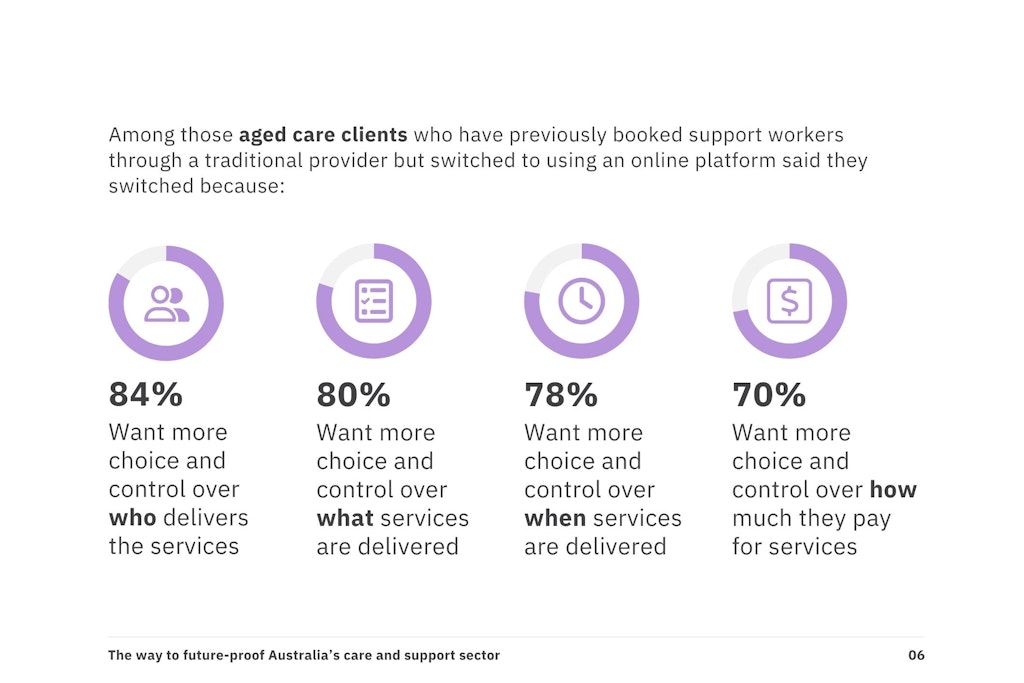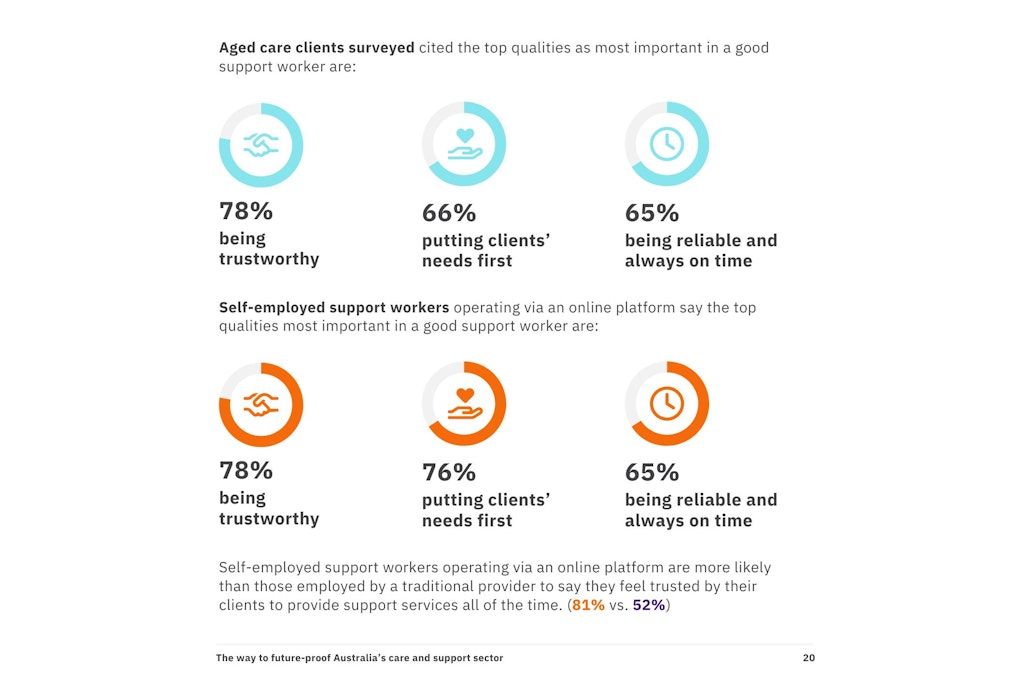Self-employment and self-management are on the rise in aged care
Published on 14 June 2024 (Last updated on 11 July 2024)

Aged care employers risk losing one-quarter of their support worker workforce over the next 12 months as new data published by Mable reveals that self-employed workers are far happier and have more choice and control over their lives.
Key points
- Mable, an online platform that facilitates aged and disability care services, released a White Paper titled Championing People’s Choice and Control with Innovation based on data collected by independent research firm YouGov
- Among the key stats, 24% of support workers employed by traditional providers are very likely or likely to leave the sector in the next 12 months compared to 7% who are self-employed and operate via an online platform
- Support workers employed by a traditional provider are also reportedly ten times more stressed and five times more frustrated than their self-employed counterparts
- Meanwhile, 80% of aged care clients said they had better outcomes using an unregistered online platform compared to a traditional provider
- Clients are also more satisfied with the service timing delivery, hourly prices and who provides the service when using an online platform to self-manage their care
Overall, the data collected by YouGov and published by Mable shows that many older people, and those with disability, want greater control over the services they receive within their homes.
Workers in traditional employment settings are also finding more appeal in taking charge of their careers. Just over one-quarter seek more regular working hours and one-fifth are ready to have more choice over the services they provide and the clients they support.
“This White Paper demonstrates there is a need to reshape Australia’s care and support sector to ensure it is fit for a diverse and modern workforce that can meet the individual needs of older people and people with disability,” Tony Charara, Mable Co-Founder and CEO, said.
“The reality is that people’s goals, wants, and needs are diverse. Therefore, it is essential not to see the sector as one homogenous market but as thousands of smaller heterogenous marketplaces defined by different geographic regions, cultural groups and individual needs and preferences.”

Mable, which is an unregistered online provider as it does not meet registration requirements for the NDIS or aged care sectors, is one of several online platforms that self-employed care workers can go through. Others, that may be registered with the NDIS, include HireUp, Find A Carer and Careseekers.
These services are reportedly growing in popularity as the baby boomer demographic is leading a technological shift in home care services.
“Baby boomers are the first technologically savvy cohort to enter the aged care system. Technology assists them in their everyday lives on their home computers, laptops, tablets or mobile phones. They may access health services via a telehealth solution, use online banking, book appointments or stay connected with friends and loved ones,” the White Paper states.
“They are also a generation that expects to be able to remain independently living in their homes for longer and question whether they need to go into residential care at all.”
The data shows aged care and disability clients are often twice as satisfied with the services they receive through online platforms. Control over when the services are delivered, who delivers them and even the ability to cancel or change at the last minute were top priorities for clients.
“For aged care and disability customers, there is a trend towards online platforms, driven by a desire for enhanced choice and control over the services they receive and who delivers them,” Mr Charara said.
Mr Charara added that online platforms have the potential to improve productivity, transparency, workforce participation and to resolve supply and demand imbalances in thin markets.
“This view of the market, coupled with a sector-wide commitment to independence, choice, and control, will drive up satisfaction levels for both support workers and consumers, increasing the quality of service and resulting in better outcomes for all.”
For the most part, the services provided by self-employed aged care workers focus on domestic assistance, social support and personal care services. This shows many of the clinical tasks are still utilised via traditional aged care service providers with supplemental services coming from elsewhere.

Cost is also important as 71% of aged clients said they get more value and hours of support if they book support workers through an online platform. Interestingly, that figure was only 46% for NDIS participants.
With the average self-employed worker only working 17 hours per week, and just 12% working more than 30, work-life balance is a key priority. Many are likely to juggle family or carer responsibilities, while 23% are also employed full-time or casually by a traditional provider.
This shows that while some aged care workers prioritise flexibility, entrepreneurship and personal satisfaction, others seek to earn enough income due to living cost pressures.